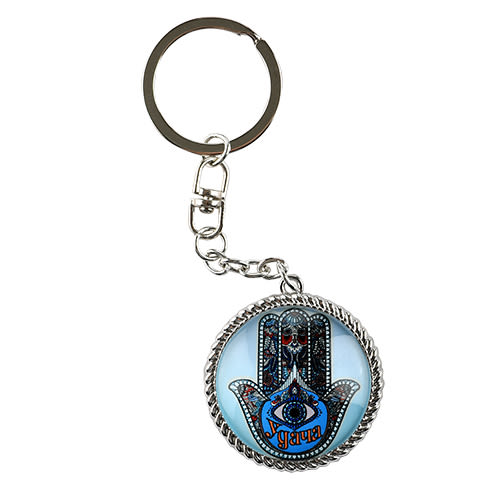
Nachman the Merchant
Rebbe Nachman said about himself that had he not waited patiently for Hashem to fulfill his needs, he’d have become nothing better than a travelling salesman…

The Garden of Riches, Part 16
Good Advice
Every time people come to me with financial problems I tell them that the first step is to get rid of their check books and credit cards!
Businessmen and merchants ask, “How can we? How can we manage a business without checks and credit cards? We won’t be able to fill up a tank of gas!” I try and explain to them that there’s a sin for which the punishment is to be forever in debt, and I can show them a way to do teshuva. But before anything, else they must destroy these harmful things – No checks! No credit cards!
Those who followed my advice saw how easy it is to manage without them and get out of debt. Out of habit, one thinks that he cannot do without these false payment instruments. When a person becomes convinced that he can try and function without them, it becomes surprisingly clear how soon the overdraft decreases. Slowly but surely, he can climb out of debt. Meanwhile he saves himself a fortune in impulse purchases that he might have been tempted to buy had he carried credit cards or a checkbook in his pocket.
There are two parts to uprooting debt: The first is to live with Emuna, in other words, to be content with one’s lot in life and to live within the means that Hashem provides. The second is teshuva for the root sin that caused the person to become a debtor in the first place. Teshuva alone without learning and building emuna – and changing the credit and spendthrift lifestyle – is not enough. This would be like someone purposefully standing In the middle of an expressway in rush hour praying to Hashem to save him. One can’t continue buying on credit while hoping that Hashem will help him from debt.
With the right instruction and positive action in the right direction, anyone can free himself from the chains of debt.
Hashem is close to all who call upon Him – sincerely.
A person who doesn’t have checks or credit cards has only one place to turn to – Hashem. The more his sorrow increases, the deeper his yearning, for “Hashem is close to all who call upon Him sincerely” (Psalm 145:18). One should approach Hashem and say, “Master of the universe, I thank you for all the help you have given me up to now, but I am unable to get by with the livelihood You have provided. Please grant me more income!” Hashem will undoubtedly help him.
Getting out of debt means avoiding all new debts, which especially behooves a person to throw away the checkbooks and the credit cards, and to ask Hashem to fulfill has needs with abundance. Also, teshuva and soul-searching must become a part of one’s daily routine in order to spiritually correct the root cause of debt, which as previously mentioned is sin.
The evil inclination seeks to lead a person astray by convincing him to use checks and credit cards for his financial needs, thereby diverting him from faith in Hashem as the sole provider. This hinders one’s “looking heavenwards”, and stifles his ability to pray to Hashem.
Furthermore, the evil inclination exacerbates one’s financial problems through the use of checks by apparently removing the need of turning to Hashem for a solution to the debt predicament. He may have previously lived within his means, but now however he is bogged down in a morass of debt and repayments to the extent that he’s left with nothing at paycheck time.
The extra expense of interest payments adds insult to injury. As long as debts remain unpaid, interest payments even further extinguish the hope of getting out of debt.
Hashem is the exclusive decision maker in regard to one’s income. Only He can rescue a person from debt, not the national lottery or anyone else on earth.
Waiting for Hashem’s help
Rebbe Natan of Breslev writes (Sichot Haran, 122), “I heard it said in his name that had he not waited confidently for Hashem’s help, he would have become an itinerant merchant like others who wander and travel for their livelihoods as is customary nowadays… (for all one’s needs) one must wait for Hashem in His kindness to provide without impatiently trying to obtain them immediately.”
Rebbe Nachman said of himself that had he not waited when he needed something and rushed impatiently taking loans and thereby becoming a debtor, he would have become a wanderer traveling from place to place trying to earn a few silver coins.
Try and imagine that this great Tzaddik testifies before us that had he not waited with patience and trust for Hashem’s assistance, he would have become an itinerant merchant called Nachman traveling for a livelihood instead of becoming a man of G-d, our great master and teacher Rebbe Nachman of Breslev, of saintly and blessed memory!
To be continued.














Tell us what you think!
Thank you for your comment!
It will be published after approval by the Editor.